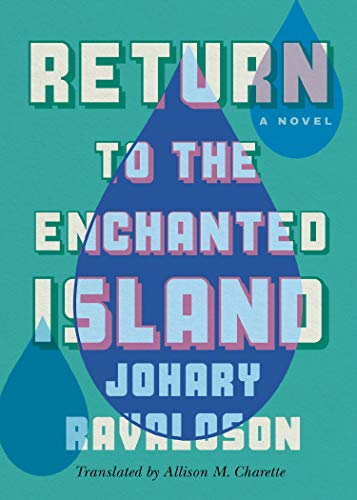What do you think?
Rate this book


In this exhilarating prize-winning novel—only the second to be published in English from Madagascar—a young man comes of age amidst the enchanted origin myths of his island country.
Named after the first man at the creation of the world in Malagasy mythology, Ietsy Razak was raised to perpetuate the glory of his namesake and expected to be as illuminated as his Great Ancestor. But in the chaos of modernity, his young life is marked only by restlessness, maddening insomnia, and an adolescent apathy.
When an unexpected tragedy ships him off to a boarding school in France, his trip to the big city is no hero’s journey. Ietsy loses himself in the immediate pleasures of body and mind. Weighed down by his privilege and the legacy of his name, Ietsy struggles to find a foothold.
Only a return to the “Enchanted Island,” as Madagascar is lovingly known, helps Ietsy stumble toward his destiny. This award-winning retelling of Madagascar’s origin story offers a distinctly twenty-first-century perspective on the country’s place in an ever-more-connected world.
172 pages, Kindle Edition
First published December 3, 2013
“Azafady tompoko!”
“Yeah, you’re definitely a daddy’s boy, huh?”
Her words utterly crucified him.
Ietsy started it but, lost in his thoughts, gave it gas and left without a backward glance. Incredulous, Lea-Nour couldn’t say a word before he disappeared.
He got sent to a cell... went before the judge, did three months of community service at the Garches hospital, was all the same spared extradition—a random impulse would never extinguish his luck.[p. 96]
Translated from the French, this novel is the first I have read by a Malagasy author. It interweaves Malagasy heritage and history with the story of Ietsy Razak, privileged son of a wealthy family, named after the 'first man' in Malagasy myth. Ietsy is sent to France to 'continue his education' after a misadventure with drugs in which a schoolmate dies. There, he meets and falls in love with Ninon, and is devastated at the end of their affair. He becomes an illegal alien when he forgets to renew his visa.
Despite being lazy and prone to depression, Ietsy tends to fall on his feet. He has good (and patient) friends, and seems to get away with a great deal. It's a clash of cultures -- Madagascan nobility versus modern, democratic France -- and only by returning to Madagascar can he find peace and happiness.
I don't think the audiobook -- capably narrated by Ron Butler -- was the best way to appreciate this novel. I found it difficult to understand the parallels between the mythic and the real Ietsys, and I didn't really warm to the protagonist, a spoilt slacker exploiting his social status to get away with ... well, with causing the deaths of others. But Return to the Enchanted Island did offer a portrait of Malagasy life, culture and history, and in that respect was interesting.
I note that the original title, Les larmes d’Ietsé, translates as 'The Tears of Ietsy': perhaps a more descriptive and less generic title than the rather vague Return to the Enchanted Island.
Angano angano, arira arira, a legend is a legend, the truth is another, it is not I who lie but those who transmitted it to me.